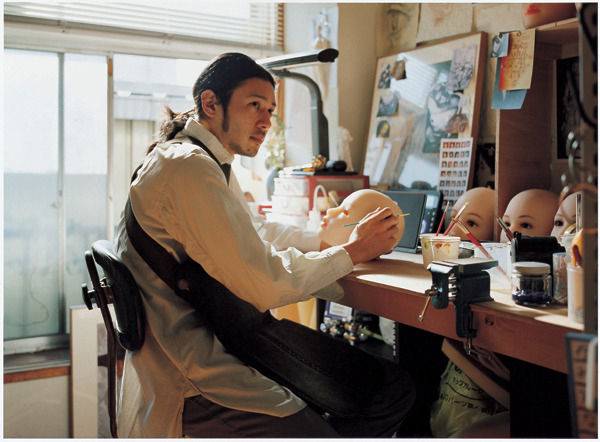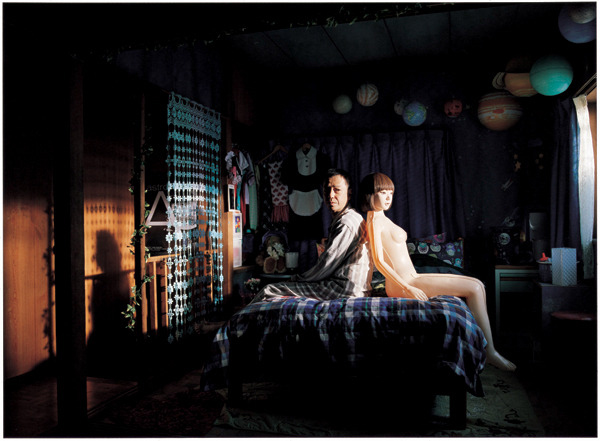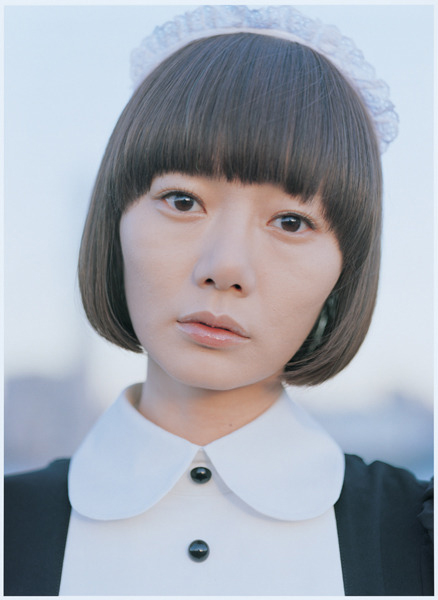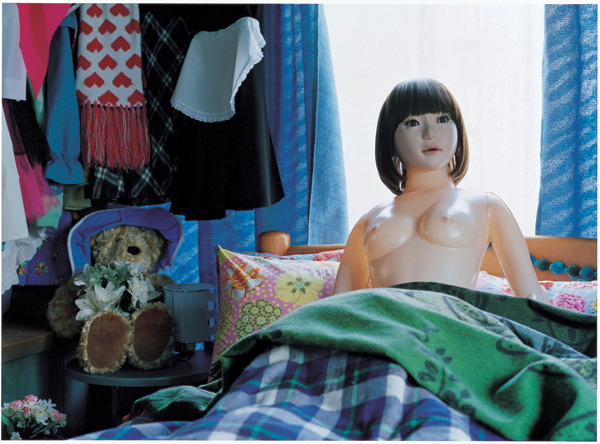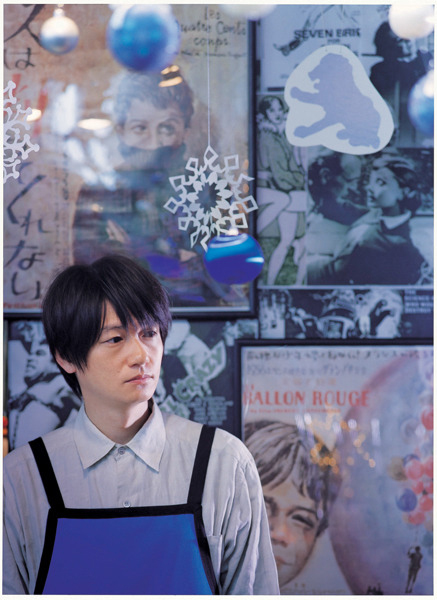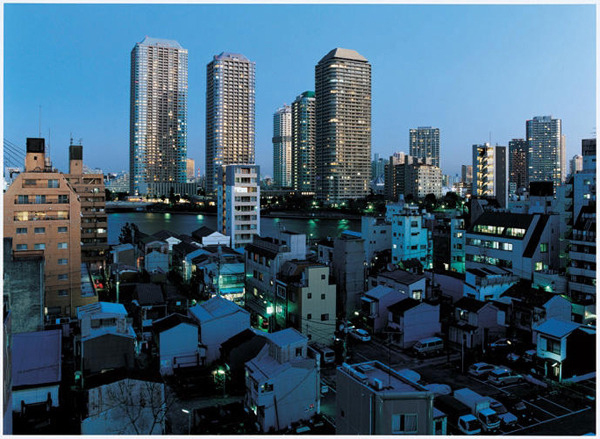IFFR 2010: AIR DOLL review

Why does an inflatable sex doll come to life and proceed on a journey of discovery looking to explore the human condition? It just does, apparently. Hirokazu Kore-Eda's Air Doll is quietly unapologetic about its status as a winsome piece of magical realism long on wide-eyed charm and short on exposition. Based on the manga of the same title, Korean actress Bae Doo-Na plays the titular character risen from her owner's bed, wandering downtown Tokyo observing the comings and goings of a string of angst-ridden souls and wondering what makes them tick.
It's an immediately engaging (if not wholly original) premise, one that - initially - Kore-Eda seems to be playing admirably straight. Though not outright graphic, the film does contain everything the setup implies and notably more of it than the manga, which focused much more on the doll herself than the people who interact with her. The people who use her as a receptacle for unfulfilled desire (to paraphrase the dialogue) are shown very matter-of-factly, Kore-Eda obviously well aware individual scenes could provoke nervous giggles, but never explicitly gunning for any kind of strained reaction.
The main narrative thread centres on the doll's taking a job at a local video rental outlet, and her tentative attraction to one young clerk there. Kore-Eda's approach to magical realism (Air Doll is his first attempt at outright fantasy) basically involves everyone accepting the doll's apparent eccentricities without comment, sagely pondering her innocent questions on the meaning of life as if themselves contemplating these things for the first time.
The biggest problem with this is that far too often Air Doll drifts straight past broadly sketched and into outright vacant. The script raises any number of interesting possibilities, but Kore-Eda seems frustratingly ambivalent about following them up, content to drum the same points home again and again through didactic repetition. Yes, human beings are basically all empty inside, searching for something to fill them up - without any further elaboration or engaging symbolism to latch onto this is cause for protracted yawning the second time, let alone the fifth or sixth. The manga Chobits covered much of the exact same ground and proved far more emotive, for all its flaws and lack of subtlety.
The tone also hits a number of jarring notes, never able to push any real kind of morality, whether ambiguous or clear-cut. One moment it seems happy to pitch everything at the level of melancholic, childlike whimsy a la Jean-Pierre Jeunet, then it whiplashes to characters coldly mistreating the doll without a shred of foreshadowing or where previously their actions went without comment. In the same vein a later cameo from Jo Odagiri feels horribly misjudged, his character spouting empty platitudes that just confuse the issue even further.
As the only member of the cast with anything approaching a substantial role, Bae Doo-Na arguably elevates the material more than it deserves. Though her performance basically runs along the same track from start to finish she throws herself completely into childlike wonder to the point much of the doll's empty musing occasionally starts to seem like pearls of genuine wisdom. Her unconventional features - those giant eyes and prominent nose - sell the transition from plastic to human skin despite the lack of many overt special effects and she seems generally unfazed by the nudity (not to mention the physical acting) the part demands.
Sadly most of the good will the film does engender vanishes come a climax which has to rank as one of the most horribly mishandled on film in quite some time. It introduces the kind of misunderstanding which requires a firm grip on the narrative not to spiral into outright farce, and though Kore-Eda tries his best neither he nor his cast can stop the ending from imploding spectacularly. It isn't presented in any remotely convincing way, whether tragic, comic or horrific, and it all but ensures the film leaves very little behind other than a sour aftertaste.
It seems frustratingly ironic a film which repeatedly seeks to remind us the human condition is one of emptiness and isolation feels so utterly bereft of any real substance. The production values are polished enough, but little or nothing of Yohei Tanada's much-touted set design leaves any impression. The score (by the brilliant World's End Girlfriend) feels largely wasted in service of half-hearted emotional manipulation. The performances don't lack for talent or effort but end up lost in such a slight, seemingly pointless narrative. There's enough here after Hana (2006) to suggest there's some potential in Kore-Eda pursuing genre work after the social dramas that made his name, but right now Air Doll feels like little more than a horribly missed opportunity.
Air Doll
Director(s)
- Hirokazu Koreeda
Writer(s)
- Yoshiie Goda
- Hirokazu Koreeda
Cast
- Bae Doona
- Arata Iura
- Itsuji Itao









